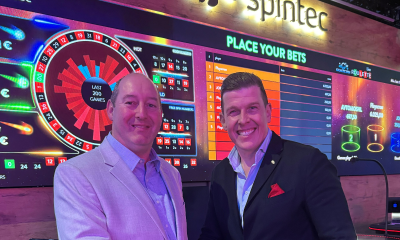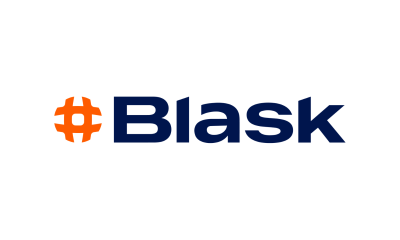Latest News
How 2 Bolton Based Businesses are Tackling Addiction in the Aftermath of Lockdown

Two Bolton based businesses, Acquiesce and WHYSUP, recorded a podcast discussing addiction, and how they are tackling it following the coronavirus lockdown.
Acquiesce is a private rehabilitation centre, offering luxury accommodation and an urban recovery model that integrates recovery into everyday life. Tina, the senior practitioner at Acquiesce, oversees each individual’s entire journey.
WHYSUP was founded by Mark and Liam. They work to deliver presentations, workshops and keynotes to schools and businesses across the UK to educate and raise awareness of mental health and addiction.
Mark’s Story
Mark begins by explaining his battle with a gambling addiction that started with a bet when he was just sixteen. By 21 he realised he needed help and attended Gamblers Anonymous meetings.
“I remember going to a GA meeting, looking around and thinking ‘Well I’ve not lost my house, not lost my wife, not lost my family. I’m not as bad as these so I don’t need help.”
By 25 he had a girlfriend and a professional job. Everyone around him thought he had left his old life behind and was on the road to recovery. Unfortunately, this wasn’t the case.
At 29, he was kidnapped and held hostage by a group with machetes who were demanding ransom from his mother. Luckily, the police tracked his phone and rescued him.
Mark finally hit rock bottom when his family turned their backs on him. Without his family, he felt that suicide was the only way out of his mess but knew the impact this would have on everyone around him, including his children.
With help from his mum, Mark went to rehab in Birmingham. He took part in the fourteen week programme but stayed there for another five and a half months.
In rehab, Mark wrote down all of his debts. He initially thought he owed a total of £100,000 but now says it was closer to £306,000.
“It’s like I’m talking about a different person now when I look back. Thankfully that’s where it turned around for me. Rehab saved my life.”
Liam’s Story
Around the age of 13, Liam started to experiment with alcohol and drugs like many teenagers at the time.
“There was no prevention or awareness, no knowledge of addiction. My decisions were based on ‘Am I going to get caught?’”
“By 15 I was taking Class A drugs several times a week. I thought drinking and drugs were a normal part of life. I also thought I was good at it because I could do it and still do what I was supposed to be doing.”
Liam got his GCSEs, enjoyed Thai boxing, got his A levels and had a long term girlfriend, all whilst taking drugs.
“I was living a double life. No one knew. From the outside I was seen as popular and successful, the things that you don’t associate with addiction. That’s why I never thought I had a problem.”
He also started struggling with his mental health, dealing with feelings of shame, guilt and paranoia. Liam finally acknowledged his problem after crashing four cars in one week and his family started to ask questions.
“From the minute rehab was mentioned I booked myself in. I pretty much destroyed everyone I loved because I had to tell them what had been going on. When I came out, I went back to normal life, the life where I’d taken drugs for 19 years.”
Following rehab, Liam continued to take drugs after he relapsed at a funeral. His wife became frustrated with the chaos and arranged for him to stay with Mark.
“It wasn’t easy but I was given a safe place. I was able to build a recovery in the real world, which is very important because you can’t just live in a bubble.”
Mark encouraged Liam to make weekly plans, give up his cash card and attend the gym in the same way that he did when he was in recovery at the halfway house.
“I didn’t need to change my location, I needed to change my mindset. People, places, routine, structure- I had to relearn it all to get where I am today. This is why we got in touch with Acquiesce. It integrates the real world into your recovery.
Acquiesce
Acquiesce provides a discreet, highly supported and safe environment within the community to recover in. Without being hidden from the real world, the urban recovery model allows individuals to gain all the tools and experience necessary whilst maintaining a carefully monitored level of responsibility over their own recovery.
This makes the transitional period from treatment a much smoother process, resulting in a more sustainable recovery journey.
WHYSUP
Mark and Liam started WHYSUP after discussing how their addictions started and the mental challenges they had faced. They wondered if anything would have changed had they been given a talk in school.
Three years later, their service is well established and works in three different sectors; education, business and sport.
They have spoken to over 30,000 people nationwide. Over the last 18 months, people with some form of experience have joined the team. Initially their key focus was addiction but they now focus more on mental health and wellbeing.
Support During Lockdown
The team were managing the number of calls well, especially once they hired a professional who helped with more severe cases. Unfortunately, when lockdown started, calls quadrupled and they could no longer meet the demand.
“We underestimated how many and how severely people were declining. They were threatening suicide and we had to drop off flowers at funerals of people who would likely still be here if it wasn’t for lockdown.”
Acquiesce also had an increase in calls, with people experiencing anxiety and fear from a loss of jobs and uncertainty about the future. Tina explained that the number of individuals at high risk from drinking has doubled according to Public Health England.
“We found that some clients have relapsed after being clean for many years and have had to come back into treatment.” Tina added.
When defining addiction from a professional point of view, Tina says they look at withdrawals, tolerance, loss of control, broken promises and consequences, but that in reality it’s a much wider perspective.
“I define addiction as a compulsive behaviour that is impossible to stop without professional help and support. As much as you try to convince yourself you can do it alone, I know from experience that you just can’t.” Added Mark
Liam’s definition of addiction has changed over time. He said, “Two and a half years ago, I’d have talked about drugs. For me now it’s more than a substance or behaviour, it centres around thinking and feeling.”
Tina explained that the Acquiesce programme is very much about positivity, positive self talk, self esteem, gaining confidence.
“When clients come in, their addiction has robbed their self esteem and we work to get it back.”
If you or a loved one are struggling with addiction or mental health issues, please book a callback with Acquiesce at acquiesce.org.uk/contact or 01204 771940, or get in touch with WHYSUP at whysup.co.uk/contact
To listen to the whole podcast, please visit acquiesce.org.uk/how-2-bolton-based-businesses-are-tackling-addiction-in-the-aftermath-of-lockdown/
Powered by WPeMatico
iQOO S8UL
iQOO S8UL crowned champions of Rai Star x Gyan Gaming Cup, one of India’s largest MOBA Legends 5v5 tournaments

iQOO S8UL, the MOBA Legends 5v5 team of S8UL Esports, emerged victorious at the Rai Star x Gyan Gaming Cup, one of India’s largest MOBA tournaments, with a nail-biting 4-3 win in the grand final held in Kolkata on February 18. The championship secured the team INR 12.5 lakh in prize money and reinforced S8UL Esports’ dominance in the Indian competitive MOBA scene.
The month-long tournament featured 1,024 teams in open qualifiers, culminating in a top-16 main event. Led by in-game leader Mohammad Saad (Apex), alongside Abhijeet Katkar (Abhi), Mehta Jay (J), Chirag Singh (Radium), Debasish Sana (Anti), and Joseph Nehhunjang (Kakarot), iQOO S8UL displayed remarkable composure and strategic execution throughout.
The team’s path to victory included:
-
Quarterfinals: 2-0 win over Megatron Esports (Bo3)
-
Semifinals: 3-1 victory over PEAK (Bo5)
-
Group A Finals: 4-0 sweep of Elusivity Esports (Bo7)
-
Grand Final: 4-3 triumph against Godlike Esports (Bo7)
Animesh Agarwal, Co-founder of S8UL Esports, commented: “This win is a testament to our long-term vision and structured support system for elite players. The Indian MOBA ecosystem is growing rapidly, and victories like this validate our investment in building top-tier lineups and nurturing talent.”
IGL Mohammad Saad (Apex) added: “The grand final was one of the most intense series we’ve played. This title belongs to everyone who believed in us.”
The victory strengthens S8UL Esports’ reputation as a leading Indian esports organization, highlighting its commitment to developing elite talent and elevating India’s presence in both national and global esports arenas.
The post iQOO S8UL crowned champions of Rai Star x Gyan Gaming Cup, one of India’s largest MOBA Legends 5v5 tournaments appeared first on Eastern European Gaming | Global iGaming & Tech Intelligence Hub.
Latest News
PG Soft returns with dual sponsorship for SiGMA Africa 2026

PG Soft, a leading mobile games developer, returns to SiGMA Africa 2026, taking place from March 3–5 at The Grand Arena, GrandWest Casino and Entertainment World in Cape Town, South Africa, with two high-profile sponsorships.
Africa remains a rapidly growing and increasingly savvy iGaming market, forming a key part of PG Soft’s long-term expansion strategy.
The HD Screen at Entrance Sponsorship puts PG Soft’s logo on giant screens next to registration, accompanied by a looped promotional video showcasing its diverse game portfolio to every attendee.
Meanwhile, the Registration Counter Sponsorship gives the brand prominent exposure at the start of the SiGMA experience, featuring full branding and two dedicated screens for maximum visibility.
The dual sponsorship underscores PG Soft’s commitment to the African iGaming market and its ongoing strategic growth in the region.
A PG Soft spokesperson said: “Africa continues to be an exciting frontier for iGaming innovation and growth. By sponsoring SiGMA Africa once again, we’re reaffirming our dedication to this vibrant market and our belief in its potential. We look forward to connecting with industry leaders and partners at one of the continent’s premier gaming events.”
The post PG Soft returns with dual sponsorship for SiGMA Africa 2026 appeared first on Eastern European Gaming | Global iGaming & Tech Intelligence Hub.
Belatra
Rods at the ready for Belatra’s Ice Bass slot

Belatra, the innovative online slots developer, is back with the highly anticipated sequel to its hit Blast the Bass, introducing Ice Bass.
The familiar fisherman returns, swapping summer gear for a heavy-duty parka and an ice drill, ready to fish beneath a frozen lake for a maximum win of 5,000x. Each spin is accompanied by an energetic soundtrack that intensifies as players progress through the game’s new levels.
Fish icons represent both standard payline elements and credit symbols, with multipliers ranging from 2x to 1000x. The Fisherman-Wild, appearing exclusively in Free Games, collects all visible values on the screen, with multiple Fishermen multiplying the haul.
Players can unlock boosters during the pre-game fishing phase—triggered by three or more Scatters in Free Games—that add Fishermen, extra spins, or guaranteed Fish symbols. The round continues until the dreaded Old Boot is hooked, with the Booster panel stacking rewards and multipliers as the feature progresses.
Hot Mode, activated by five Scatters in the base game, immediately awards active multipliers and additional games. Players can increase Scatter frequency with the Bet +25% option or jump straight into Free Games or Hot Mode using the Buy Bonus feature.
Misha Voinich, Head of Business Development at Belatra, commented: “Get your winter gear ready for our slick new Ice Bass, a worthy follow-up to the much-loved Blast the Bass. We wanted to create a game that packs the same punch as the original but in a thrilling winter setting—and the team has delivered a game that’s scorching hot even below zero!”
The post Rods at the ready for Belatra’s Ice Bass slot appeared first on Eastern European Gaming | Global iGaming & Tech Intelligence Hub.
-

 Amusnet6 days ago
Amusnet6 days agoWeek 7/2026 slot games releases
-

 Aphrodite’s Kiss6 days ago
Aphrodite’s Kiss6 days agoLove on the Reels: Slotland Introduces “Aphrodite’s Kiss”
-

 Brino Games6 days ago
Brino Games6 days agoQTech Games integrates more creative content from Brino Games
-

 Bet Rite7 days ago
Bet Rite7 days agoSpintec Expands into Canada with Bet Rite
-

 Alex Malchenko6 days ago
Alex Malchenko6 days agoEvoplay Strengthens Canadian Presence with BetMGM Partnership
-

 3 Oaks Gaming6 days ago
3 Oaks Gaming6 days ago3 Oaks Gaming Enters Spanish Market
-

 blask7 days ago
blask7 days agoWhen LATAM gambles: Blask reveals seasonality patterns across six countries
-

 Latest News6 days ago
Latest News6 days agoRed Papaya Presents: Lucky Rainbow Rush Adventure



















